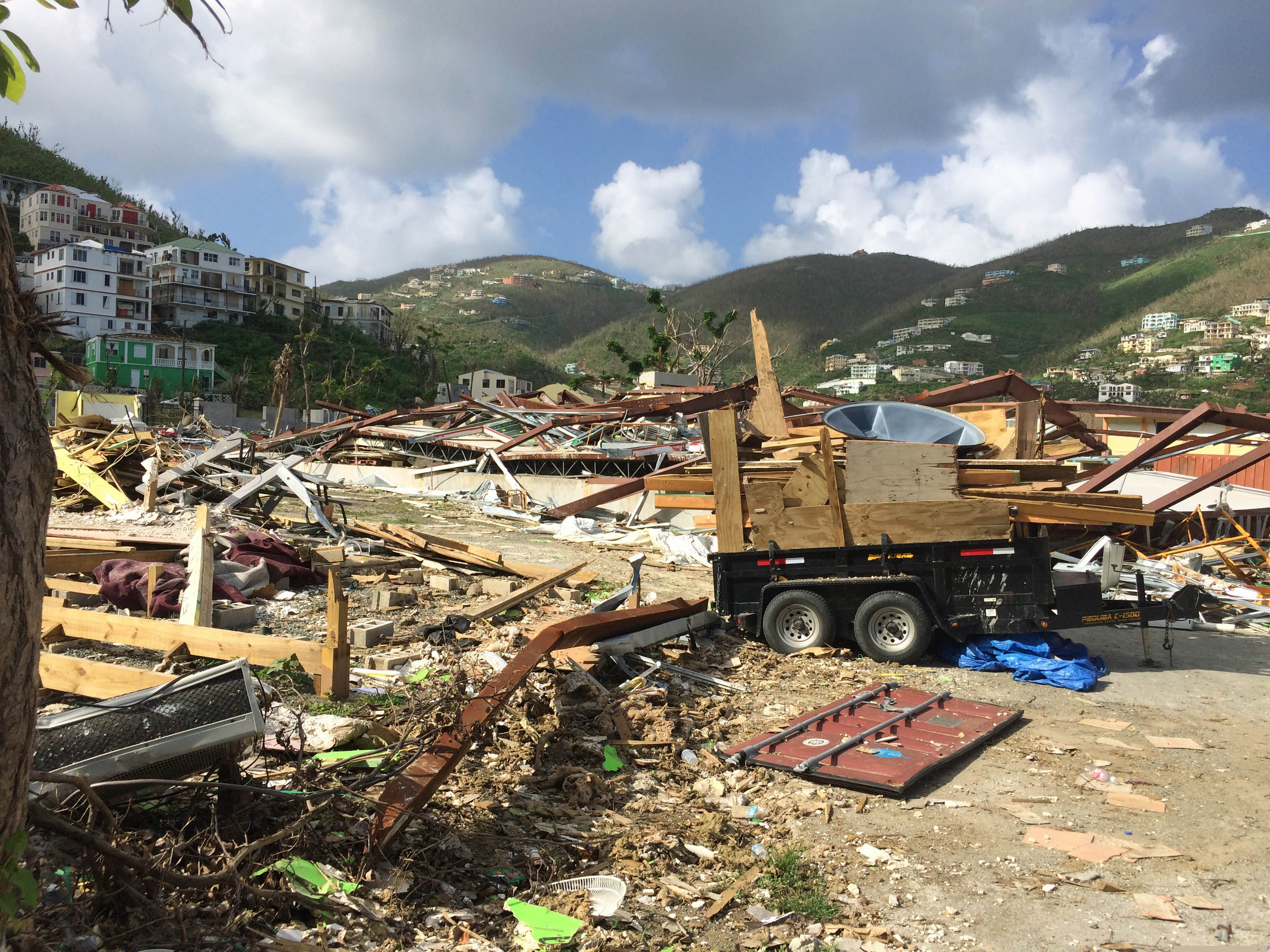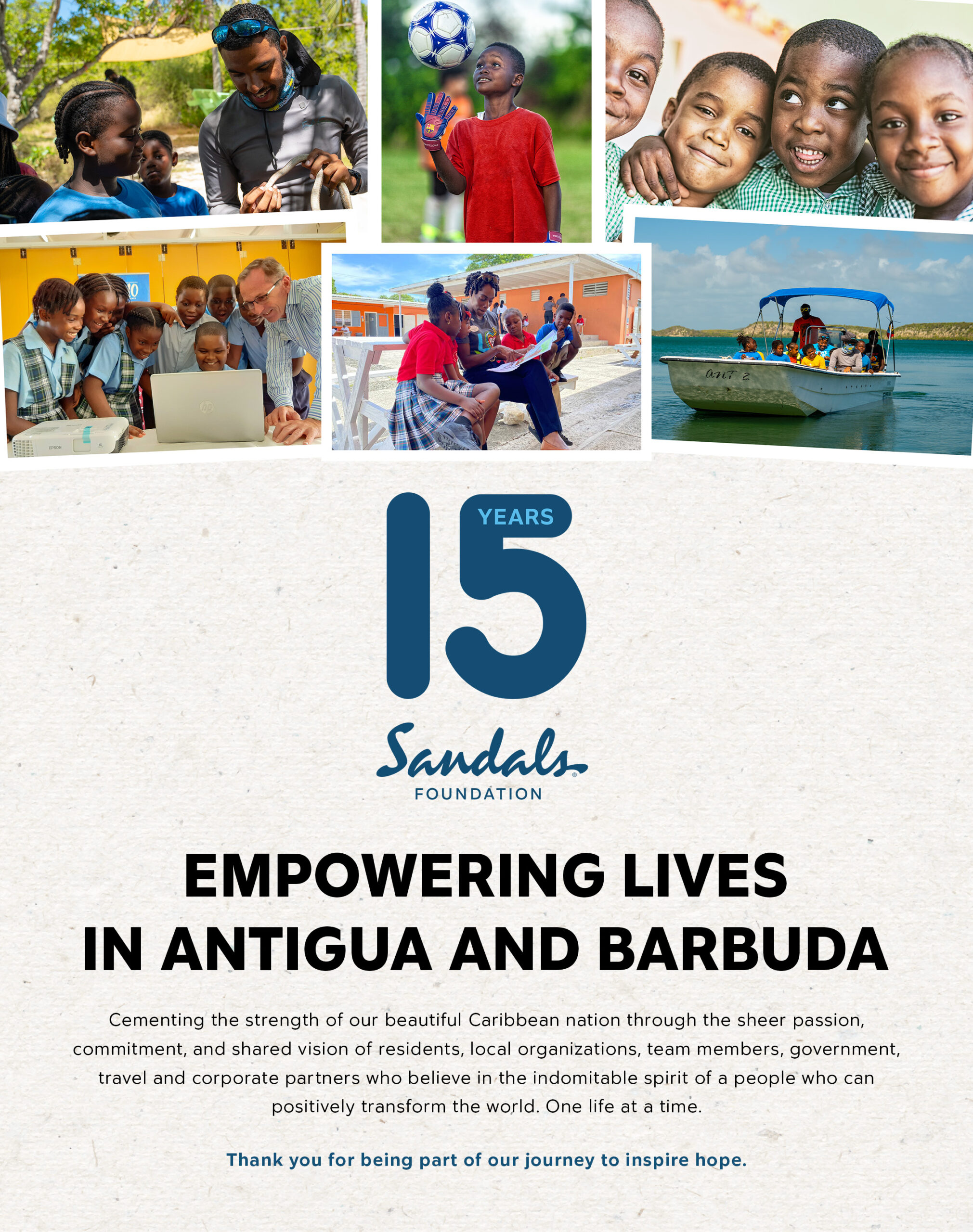
The International Monetary Fund (IMF) says some of the Caribbean islands that were hit hard by hurricanes during 2017 face a protracted recovery.
In a paper titled “Regional economic outlook. Western Hemisphere: an uneven recovery,” the Washington based financial institution said that in Dominica, for example, which was hit by Hurricane Maria, a category 5 storm, the gross domestic product (GDP) is projected to further decline by 14.1 per cent in 2018, before rebounding by about 9.4 per cent in 2019 as reconstruction gathers pace.

It said that economic activity in commodity exporters has also improved thanks to higher prices.
The IMF said that Trinidad and Tobago is expected to register moderate growth in 2018–19, following two years of recession.
New gold mines have further increased growth prospects in Guyana and Suriname for 2018–19. Guyana is also benefiting from investments in the oil sector, with production expected to start in 2020.
But the IMF noted that high fiscal deficits and public debt remain major vulnerabilities for the region.
However, in some tourism-dependent economies, debt ratios are now retreating from very high levels, with several countries engaged in multiyear fiscal consolidation efforts, including Grenada, Jamaica, and St. Kitts and Nevis.
“In these cases, continued fiscal prudence will be necessary to gradually reduce debt to a sustainable level and to build and preserve buffers against adverse shocks. In Antigua and Barbuda, there is a clear need to tighten the fiscal stance, in combination with structural reforms to bolster growth, to reduce public debt.”

The IMF said that a well-designed fiscal rule could help guide the consolidation effort and broaden support for it.
It said that the new government of Barbados reached agreement at the IMF staff level on a 48-month Extended Fund Facility, in support of an economic reform programme that “aims to restore macroeconomic stability and put the economy on a path of strong, sustainable, and inclusive growth, while safeguarding the resilience of the financial sector”
In commodity exporters such as Suriname and Trinidad and Tobago, the sudden decline in commodity prices in 2014–15 contributed to large fiscal deficits and a rapid increase in public debt.
“In these cases, tighter fiscal policies in the context of medium-term macroeconomic adjustment are needed to re-establish a sustainable fiscal path and ensure debt sustainability.
But the IMF noted that despite progress on financial sector reform, numerous banks in the region continue to have high levels of nonperforming loans.
“This constrains credit availability and economic activity and increases banks’ vulnerability to shocks. In the Eastern Caribbean Currency Union (ECCU) and some other countries in the region, the authorities have made progress on reforms to strengthen bank resilience, including through regulatory enforcement of capital requirements and efforts to clean up banks’ balance sheets.
“Further steps are required, however, including strengthening oversight of nonbank financial institutions and further enhancing the capital adequacy of indigenous banks.”

The IMF said that an additional priority for strengthening financial sector resilience is securing correspondent banking relationships through more effective implementation of Anti-Money Laundering and Countering Financing of Terrorism (AML/CFT) frameworks, bank consolidation, and improved communication and information exchange with correspondent banks.
“Stronger implementation of structural reforms is also necessary to enhance competitiveness, private investment, and growth. In several countries, policy priorities include reducing high electricity costs by conserving energy and diversifying the energy mix, deepening financial systems and enhancing access to credit, tackling violent crime, and reducing high unemployment and brain drain by improving the business climate and strengthening institutions.”
The paper said that sector-specific policies to support structural transformation could help boost the region’s key industry, tourism, including through advertising activities, training, nature conservation efforts, and the provision of transportation infrastructure.”
According to the document amid escalating trade tensions, tighter financial conditions, and volatile commodity markets, economic recovery in Latin America and the Caribbean (LAC) has both moderated and become more uneven.
The IMF said that the recovery has slowed in some of the region’s largest economies, such as Brazil and Mexico, even coming to a halt in the case of Argentina, as the impact of external headwinds has been amplified by country-specific vulnerabilities.
“In a similar vein, higher oil prices coupled with increased political uncertainty have dampened the near-term outlook in several economies in Central America. There is still no end in sight to the economic and humanitarian crisis in Venezuela.”
It said that better terms of trade over the past year and improvements in consumer and business confidence have provided a fillip to growth prospects in some Andean economies, and activity is recovering in the Caribbean, reflecting the uptick in tourism owing to robust US and global growth.
But the IMF said that downside risks to economic prospects in LAC have risen and potential for upside surprises has receded.
“With major currencies registering sharp declines and debt levels remaining at relatively elevated levels in many economies in the region, the scope for near-term countercyclical policy support is generally limited.”
Advertise with the mоѕt vіѕіtеd nеwѕ ѕіtе іn Antigua!
We offer fully customizable and flexible digital marketing packages.
Contact us at [email protected]

















